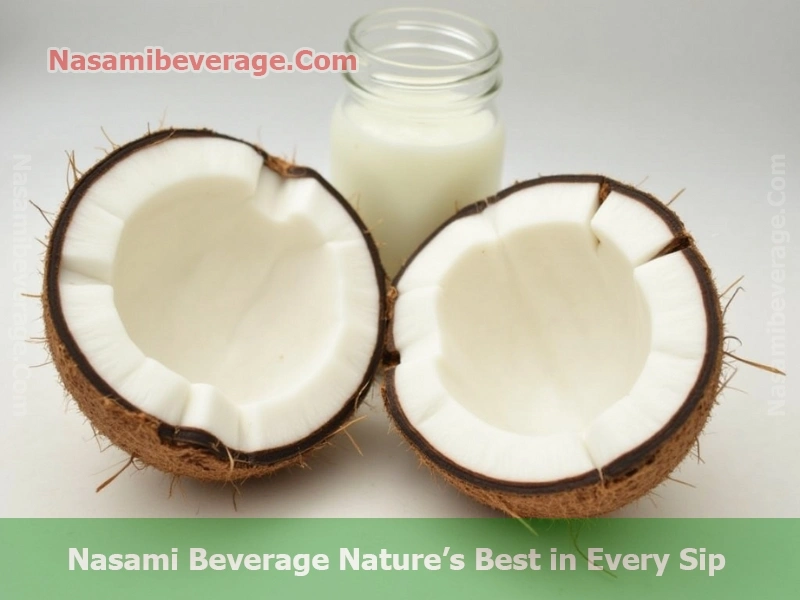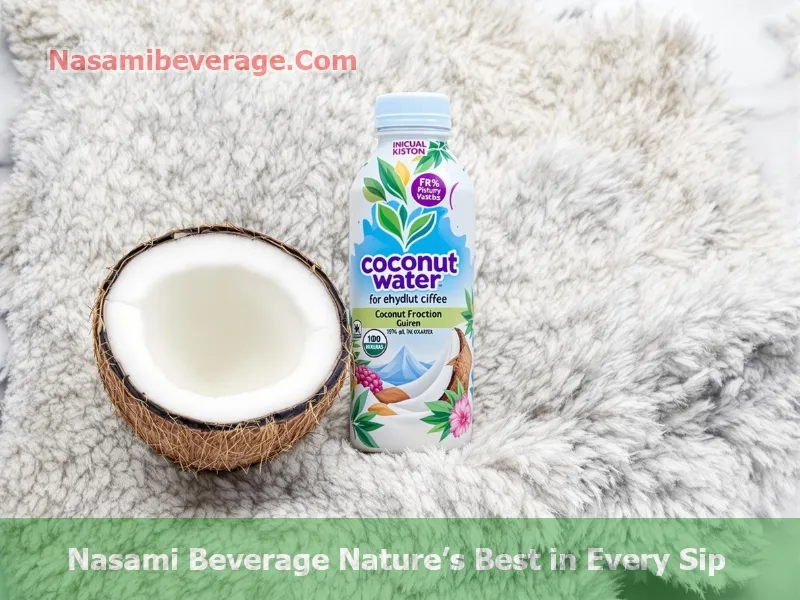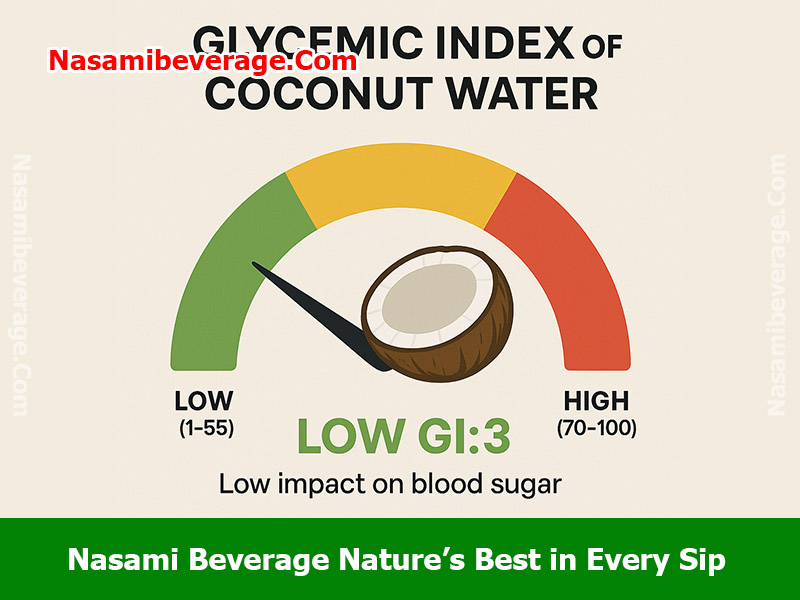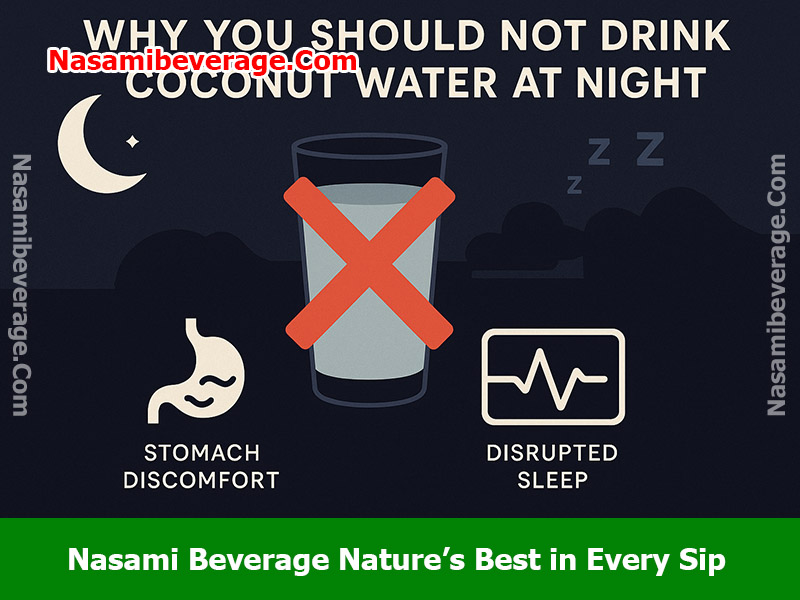When you’re feeling depleted, don’t just hydrate-replenish. Using coconut water for dehydration is a superior choice, as it naturally restores the essential electrolytes like potassium that are lost through sweat or illness, offering a more complete recovery than water alone.
Why coconut water is a superior choice for dehydration
When you sweat, have a stomach bug, or simply don’t drink enough fluids, your body loses critical electrolyte minerals.
These minerals are essential for nerve function, muscle contraction, and maintaining proper fluid balance. Plain water can rehydrate you, but it doesn’t replenish these lost electrolytes.
This is where coconut water‘s natural composition gives it a powerful advantage.
Unpacking the electrolyte powerhouse – Potassium, sodium, and more
Coconut water is often called “nature’s sports drink” for a reason. It is naturally rich in the electrolytes your body uses to recover from a state of dehydration. Its key minerals include:

- Potassium: This is coconut water’s star player. It contains significantly more potassium than most sports drinks, a mineral that is crucial for maintaining fluid balance within cells and regulating your heartbeat.
- Sodium: While lower in sodium than formulated sports drinks, it provides a natural source of this key electrolyte lost through sweat and is vital for rehydration.
- Magnesium: Essential for muscle function and energy production, magnesium helps prevent cramps and fatigue associated with dehydration.
- Calcium: Important for muscle contractions and nerve signaling.
- Phosphorus: Works with calcium to support cellular repair and energy.
Because these electrolytes are naturally occurring, many find them easier on the stomach than the synthetic vitamins and sweeteners found in commercial sports drinks.
Beyond the hype – What science says about coconut water vs. water vs. sports drinks
The science supports the hype. Studies have shown that coconut water is effective at rehydrating after exercise.
One 2012 study published in the Journal of the International Society of Sports Nutrition found that coconut water was comparable to sports drinks for post-exercise rehydration.
Compared to plain water, coconut water offers more comprehensive rehydration because it replaces both lost fluids and electrolytes.
While drinks like Gatorade or Powerade are specifically engineered with high levels of sodium and sugar for intense athletic performance, coconut water provides a more balanced, all-natural way to hydrate for moderate exercise, illness, or daily wellness without the high sugar load or artificial ingredients.
It’s an excellent tool to help replenish lost electrolytes and restore your body’s natural balance.
The best coconut water brands for dehydration in 2025
Navigating the beverage aisle can be overwhelming. Many products are labeled “coconut water” but are loaded with added sugars, preservatives, or made from concentrate, which diminishes their nutritional value. Here’s what to look for and which brands consistently deliver on purity and quality.
What to look for on the label – A buyer’s guide to pure coconut water
To ensure you’re getting the real deal, always check the ingredient list. The gold standard has just one ingredient: “100% coconut water.” Here are a few other tips:
- Avoid “From Concentrate”: This means the water was dehydrated into a syrup and then rehydrated, a process that can strip away nutrients and alter the flavor.
- Check for “No Added Sugar”: Your coconut water should be naturally sweet. Any brand that adds sugar is masking an inferior product and adding unnecessary calories.
- Note the Color: Pure coconut water is often slightly pink or cloudy. This natural process, called oxidation, is a sign that the water is full of natural enzymes and antioxidants and hasn’t been over-processed with preservatives.
- Consider HPP vs. Pasteurized: High-Pressure Processing (HPP) uses pressure instead of heat to kill pathogens, which helps preserve more nutrients and a fresher taste compared to traditional pasteurization.
Spotlight on top picks – From organic to budget-friendly
According to countless best coconut water brands reviews, these options consistently stand out for their purity and taste. When you need to rehydrate, these are some of the best coconut water brands on the market.

- Harmless Harvest Organic Coconut Water: Widely regarded as the industry leader, Harmless Harvest is famous for its pink hue and incredible taste. It’s USDA Organic, fair-trade certified, and made from young Thai coconuts. Because it’s micro-filtered and not pasteurized, it retains a high level of nutrients, making it an excellent choice when you need powerful rehydration.
- Vita Coco Farmer’s Organic: While the original Vita Coco is a solid and accessible option, their Farmer’s Organic line is a step up. It’s USDA Organic, not from concentrate, and has a clean, crisp flavor without the added sweeteners found in some of their other flavored products. Vita Coco’s Original is one of the most widely available and reliable options.
- Taste Nirvana Real Coconut Water: Sourced from Thai coconuts, Taste Nirvana is often praised for its authentic, sweet flavor. The company prides itself on bottling within hours of harvesting. They offer several varieties, but their flagship “Real Coconut Water” in the glass bottle is a fan favorite for its purity.
- C2O Pure Coconut Water: C2O uses young, green coconuts from inland groves in Thailand, which gives their water a uniquely sweet and fragrant profile. It’s 100% pure, non-GMO, and a great-tasting option that effectively helps replenish fluids.
How to use coconut water for optimal rehydration
Knowing when and how much coconut water to drink is key to unlocking its benefits. It’s a versatile tool that goes far beyond the gym.
Are you drinking enough? Daily intake for dehydration relief
There’s no magic number, as needs vary based on activity level, climate, and overall health. However, here are some general guidelines for when you’re feeling dehydrated:
- After Moderate Exercise: Drink an 8 to 12-ounce serving (about 250-350 ml) within an hour of finishing your workout for optimal post-workout recovery.
- During Illness: If you are dealing with dehydration from a fever, diarrhea, or vomiting, sip small amounts of coconut water throughout the day. Try 4-6 ounces every 3-4 hours. This steady intake is often better tolerated than drinking a large amount at once, especially after a stomach virus.
- On a Hot Day: If you’ve been out in the sun, an 8-ounce glass can help restore balance and combat heat exhaustion.
Not just for athletes – When to reach for coconut water
The rehydrating benefits of coconut water are useful in many common situations:

- Hangovers: Alcohol is a diuretic that depletes your body of fluids and potassium. A glass of coconut water can help replenish what was lost and ease hangover symptoms.
- Daily Wellness: If you struggle to drink enough water, incorporating a glass of pure coconut water can boost your hydration and mineral intake.
- Travel: Air travel is notoriously dehydrating. Packing a bottle of coconut water can help you feel more refreshed upon landing.
While it is incredibly beneficial, listen to your body. For some, drinking too much coconut water can have a mild laxative effect due to its high potassium levels.
It also contains calories, so it’s best used strategically for rehydration rather than as a complete replacement for water.
Frequently asked questions (FAQ)
What is the best brand of coconut water for electrolytes?
When comparing the best coconut water brands electrolytes, Harmless Harvest Organic is often considered a top choice due to its minimal processing (HPP instead of pasteurization), which helps preserve its natural electrolyte content, especially potassium.
Is coconut water more hydrating than water?
For severe dehydration, yes. While water replaces lost fluids, coconut water replaces both fluids and crucial electrolytes like potassium and sodium. For general, everyday hydration, plain water is perfectly sufficient.
How much coconut water should I drink a day if I’m dehydrated?
Aim for 2-4 servings (8 ounces per serving) spread throughout the day when you are actively trying to rehydrate from illness, intense exercise, or heat exposure. Listen to your body and don’t overdo it.
Can you drink too much coconut water?
Yes. While generally safe, excessive intake can lead to high potassium levels in the blood (hyperkalemia) in rare cases, especially for those with kidney issues. It also contains calories, so moderation is key.
How can I tell if coconut water has added sugar?
Always read the nutrition facts panel and the ingredient list. If you see “sugar,” “cane sugar,” or any type of syrup listed, it contains added sugar. The best options will only list “coconut water” as the sole ingredient.
Choosing the right coconut water goes far beyond simply grabbing the most convenient option. By prioritizing “not from concentrate” varieties, you ensure you’re getting a beverage brimming with the natural electrolytes and nutrients essential for superior hydration and post-workout recovery.
This makes it not just a drink, but a powerful addition to a healthy lifestyle, seamlessly blending into everything from smoothies to light soups.
Ultimately, the key takeaway is that becoming a savvy label-reader is your most valuable tool. The greatest benefit lies in confidently selecting a product free from added sugars and artificial additives.
Now Nasami Beverage love to hear from you. What’s your favorite way to incorporate 100% pure coconut water into your wellness routine? Share your best tips and recipes in the comments below!



